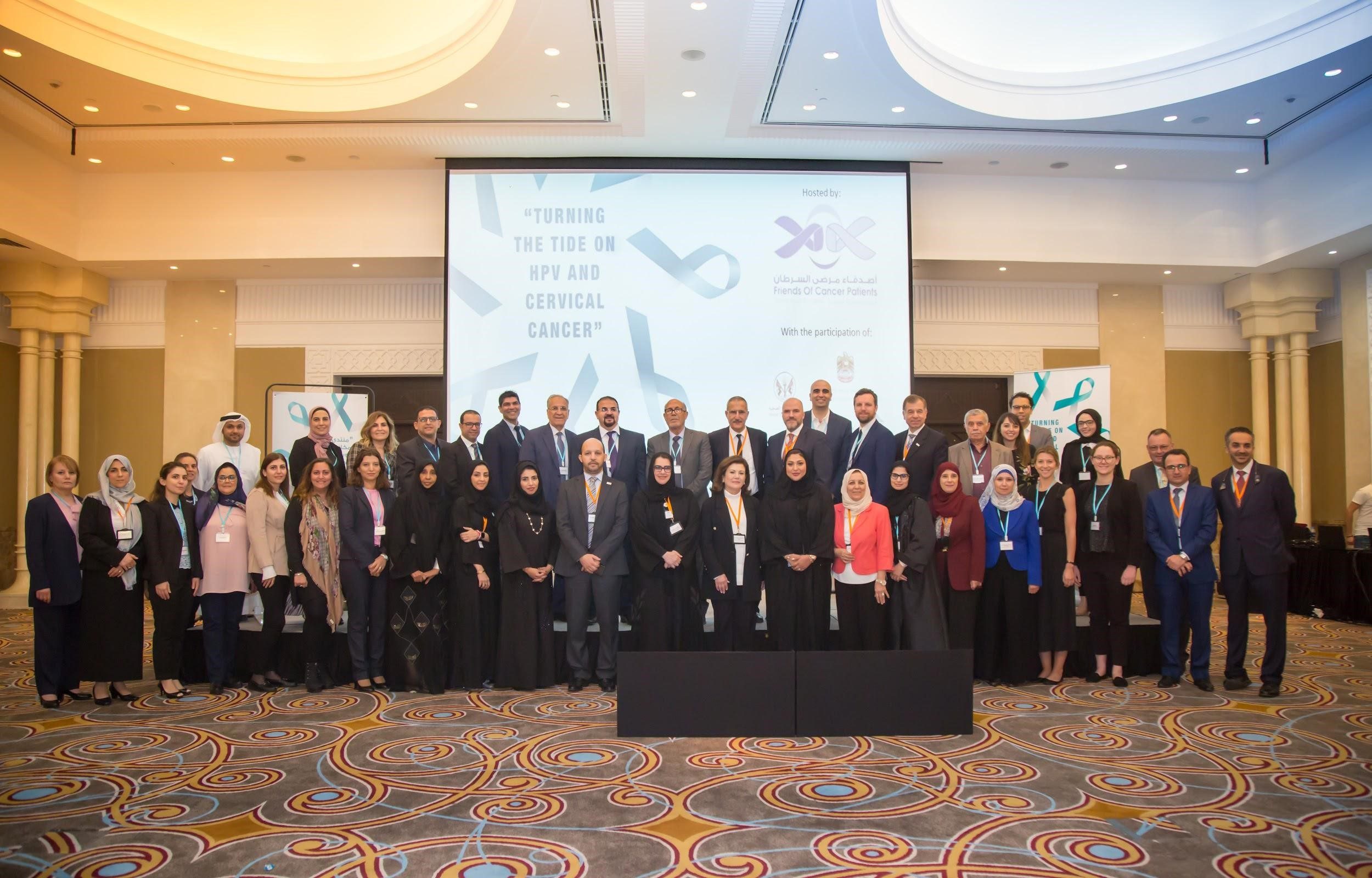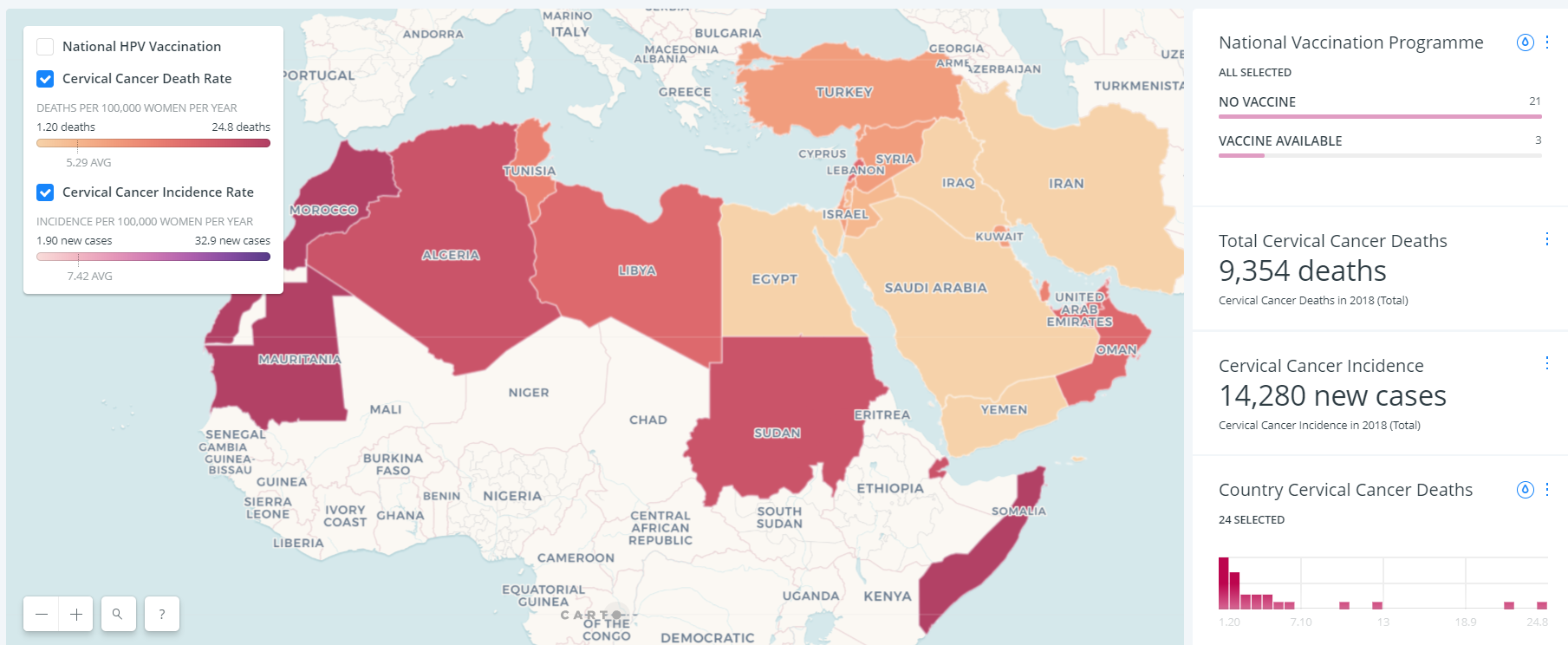The Challenge
Globally, over 311,000 women die each year from cervical cancer, surpassing the annual death toll for women during and following pregnancy and childbirth. Yet, the world has the tools to eliminate the disease, as well as the virus that causes it – human papillomavirus (HPV).
Across the Middle East and North Africa (MENA) region, the disease burden is growing, but only three countries have the HPV vaccine as a part of their national immunisation programs – the United Arab Emirates (UAE), Tunisia and Libya. Countries must take action now to end HPV and cervical cancer once and for all.
The Approach
Since 2017, GHS has been working with partners across the MENA region to create an enabling environment for a comprehensive approach to HPV and cervical cancer elimination. From building out a network of champions, policymakers, advocates and experts through the , to establishing a core group of engaged top-tier reporters, GHS is working to amplify the conversation about these diseases at the local, national and regional levels.

Group photo at the regional forum, “Turning the Tide on HPV and Cervical Cancer,” in Sharjah, UAE in January 2019, hosted by Friends of Cancer Patients UAE, with the participation of UNFPA Arab States, Eastern Mediterranean NCD Alliance, Sharjah Health Authority, UAE Ministry of Health and Prevention, and Dubai Health Authority.
The Impact
In 2018, the UAE announced the nationwide rollout of the HPV vaccine. To build on this momentum, GHS organised a high-level forum in January 2019 in the UAE to strengthen collaboration across the MENA region and encourage countries to implement quality prevention, screening and treatment services for HPV and cervical cancer.
During HPV Awareness Day on 4 March 2019, GHS showcased new data on the disease burden in an interactive map and dashboard highlighting research from over 250 publications and news from across the region.
"We need more data and research to support action against HPV and cervical cancer at the national and regional levels. Across the region, stepping up preventative efforts using a comprehensive approach is key to eliminating cervical cancer."
- Dr. Ibtihal Fadhil, Founder and Chair of Eastern Mediterranean Non-communicable Disease Alliance

Interactive map on HPV and cervical cancer in the MENA region published on HPV Awareness Day 2019 by the Tunisian Center for Public Health.